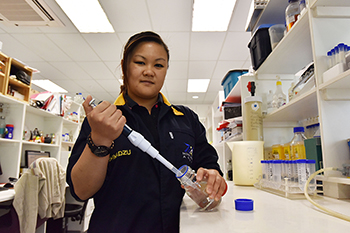Latest News Archive
Please select Category, Year, and then Month to display items
12 June 2024
|
Story Zinzi Zumana
|
Photo supplied
 UFS Lekgotla Men’s Well-being Programme: addiction dialogue encourages empowerment and exchange of ideas.
UFS Lekgotla Men’s Well-being Programme: addiction dialogue encourages empowerment and exchange of ideas.
The University of the Free State (UFS)
Division of Student Affairs hosted a ‘Dialogue on Addiction’ at the Equitas Senate Hall on 20 April 2024 as part of the UFS Lekgotla Men’s Well-being Programme. Led by the esteemed
Ace Moloi, male students’ well-being was addressed by focusing on topics relating to substance abuse, the ‘hookah pipe’, pornography, and digital addiction.
Ogaisitse Diseko, an expert on substance abuse, highlighted the misconceptions and societal impact of substances such as ‘bath salts’. Male students shared personal experiences, emphasising the need for early interventions and community backing to combat addiction.
Prof Noluxolo Gcaza, a Nelson Mandela University Professor specialising in digital wellness, presented on digital well-being, internet safety, and managing screen time. The dialogue concluded with Billy Mogadi sharing his journey from addiction to recovery, underscoring the human toll and the possibility of transformation.
Mogadi’s story resonated deeply, fostering hope and empowerment among attendees. The event highlighted the power of dialogue and support in addressing addiction issues. By promoting genuine interaction and providing the necessary tools, such initiatives contribute to community well-being and development. The UFS Lekgotla Men’s Well-being programme advances its goal of fostering healthier lives through open communication and mutual support.
The impact of personal care products on water resources in the Free State
2015-12-14

Jou-an Chen
Photo: Charl Devenish
|
Water is of the utmost importance in personal hygiene. Most people can hardly have a day go by without taking a shower in the morning and at night. However, it is this very habit that is increasingly polluting the water resources in South Africa.
Contaminants found in pharmaceutical and personal care products have been accumulating in water masses in recent years. These contaminants especially refer to hormones in medication, as well as colouring agents and fragrances used in soap, shampoo and body lotions.
“Little information and data are available on the prevalence of these contaminants, and on how high the level of pollution really is,” says Jou-an Chen, researcher in the Department of Microbial, Biochemical and Food Biotechnology at the UFS.
Her research particularly focuses on the prevalence and impact of those contaminants.
“Because these substances have not been properly investigated, we are not sure how widely it occurs and whether it is harmful to the environment. It was precisely the lack of information that has inspired me to investigate further.”
“If we could identify the contaminants and what it is doing to the environment, it could make a valuable contribution to directives on water quality standards.”